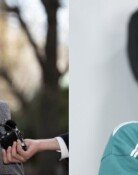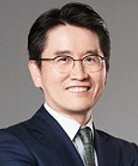New personnel changes and ruling party reformation
New personnel changes and ruling party reformation
Posted May. 16, 2016 07:33,
Updated May. 16, 2016 07:37
President Park Geun-hye appointed Lee Won-jong, director of the Presidential Committee on Balanced National Development, as a successor of Presidential Chief of Staff Lee Byung-ki, who expressed his intention to resign on Sunday. President Park also nominated pro-Park Kang Seok-hoon as the senior secretary for economic policy and Ahn Jong-beom as the senior secretary for policy coordination. On the same day, the Saenuri Party appointed anti-Park Kim Yong-tae (in the third term) as the director of the party's innovation committee. Those are the first personnel changes in the presidential office Cheong Wa Dae and the Saenuri Party after the defeat in the April 13 general elections. Frankly, they are really disappointing.
The post of presidential chief of staff has more influence in national administration than a prime minister. Therefore, a chief presidential secretary must have an insight into governance as well as a political influence over the ruling party, the government, and Cheong Wa Dae. However, Lee Byung-ki was merely an administrative official because of the so-called most powerful trio at Cheong Wa Dae. The public clearly expressed their opinion about the Park administration's one-sided governance through the general elections. If the administration learned a lesson from it, the new presidential chief of staff should have been someone from outside who can be forthright to powerful politicians, not someone like Lee Won-jong.
Lee is an administration expert. He worked as North Chungcheong Governor (once appointed and once elected) and Seoul Mayor (appointed). He may be the master of administration, but he is not the right person to take the position at this point when there are security and economy issues entangled one another and when the ruling party has less power than the opposition parties. This means that the administration will keep the current structure with a focus on management. I am deeply worried as many interpret this personnel change as the pro-Park group's strategy to use Lee, who is from the Chungcheong provinces, to facilitate the "project to make Ban Ki-moon the next president."
Kang Seok-hoon even lost at the party primary for the April 13 elections in Seoul. Yet, he is nominated as the senior secretary for policy coordination. It does not sound right especially considering the current situation. Youth unemployment rate is the highest in history and economy is crawling in the slums. Promoting An Jong-beom, who should have been demoted, to the senior secretary for policy coordination does not make sense. Most of all, the administration is still keeping Hyun Ki-hwan, the senior secretary for political affairs, in his position after he made the Saenuri Party a subordinate institute to Cheong Wa Dae by being the "political messenger" for the president during the general election period, as if they decided to ignore what the public was saying through the election.
Kim Yong-tae called himself part of "an opposition party inside the ruling party," determined to make changes. However, in the party where the majority of the party is pro-Park, I wonder how much influence an anti-Park member in his 40s and third term can wield to make changes. Many give up hopes saying that Kim will end up being like former Gyeonggi Governor Kim Mun-soo's special committee on conservative innovation. The committee's bottom-top nomination system and the no privilege for lawmakers' policy ended in smoke. Kim says that revisions of the party constitutions and regulations that the innovation committee will make be done through a national committee of the party's choice. I do not think that any revisions that could change the party will be passed in that national committee that will definitely be filled with pro-Park members.
Kim Yong-tae should change the vertical relation of party-presidential office and be determined enough to resign from the position if he is not confident about making changes. I will also watch how Kim is going to push forward with the no privilege for lawmakers' policy, as he led the rejection movement when the motion regarding apprehension of lawmaker Chung Doo-un was submitted in 2012.
박제균논설위원 phark@donga.com







